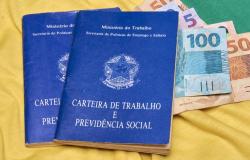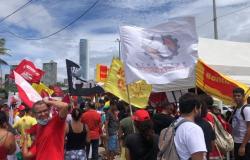Difficulty accessing resources and armed violence are the two central challenges faced by women-led rights defense initiatives in the favelas and outskirts of the metropolitan region of Rio de Janeiro. This is one of the results of the research “Women, Activism and Violence: the fight for rights in the favelas and peripheries of Rio de Janeiro”, released this Wednesday (3) by the Observatório de Favelas.
Carried out through the Favelas Observatory’s Right to Life and Public Security Program, the survey was carried out in two stages. In the first, 115 existing rights defense initiatives led by women in the outskirts of the metropolitan region were mapped, but only 23.5% of them had some type of support to carry out their activities, despite the work carried out being essential to guarantee rights in the territory.
Of the total initiatives, 70% are located in the capital, especially in the north of the city; 19% in Baixada Fluminense; 10% in the Greater Niterói region (Niterói, São Gonçalo, Itaboraí and Maricá); and 1% have metropolitan coverage.
“What we see is that, among the (initiatives) that have support, private or collective financing predominated. In this sense, it is essential that we can advance a strategy that enhances the democratization of public financing that guarantees the continuity and strengthening of these territorial actions to defend rights”, he told Brazil Agency the director of the Observatório de Favelas, Raquel Willadino, research coordinator.
Hard-hitting challenge
On the other hand, it confirmed that armed violence appears as one of the most pressing challenges in the operations of these organizations. Of the group of 115 experiences involved in the first stage of the survey, 60% reported that their activities had been impacted by armed clashes. Police operations were responsible for 50.8% of armed clashes that caused the interruption of organizations’ work, being the most frequent reason for this type of situation.
This information was later deepened by conducting interviews with women activists who carry out territorial actions and with representatives of public institutions and civil society organizations that work to protect human rights defenders.
The mapped organizations and collectives work on topics such as education, culture, ethnic-racial equality, food security, gender and sexuality, health, job and income generation, public safety and access to justice. They are primarily aimed at defending the rights of women, black people, children, adolescents, young people, LGBTQIA+ people, the elderly and family members of victims of violence.
In the second stage of the research, different dynamics related to armed violence that impact the daily lives of these organizations were mapped. In this sense, Raquel highlighted police violence as one of the central issues, in addition to clashes related to the dispute between armed groups and practices that in some way articulate armed violence with political groups, especially from the actions of militias in territories on the outskirts of the Metropolitan region.
Mechanisms
Another highlight in the study is the issue of protection mechanisms for these women rights activists. There, the violence that appears to be most recurrent in the urban context of the metropolitan region and that makes peripheral activities need to activate protection mechanisms are police violence, violence related to armed groups, political violence from disputes related to the fight for land and territory.
“These are the themes that appear most prominently as violence that, at some point, generates the need to activate protection mechanisms”, pointed out the director of the Observatório de Favelas. Of the total number of initiatives that participated in the mapping, 37.4% stated that they had been victims of some type of violence committed as a result of their activities in the territory. Among the violence highlighted by organizations due to their actions, police violence was the most recurrent. There are reports of threats, intimidation, physical attacks, houses invaded, headquarters targeted by gunfire during operations, equipment seized or broken in retaliation for complaints, among others.
Raquel Willadino highlighted that when looking at ways to strengthen these organizations, within the rights defense strategies that they develop in their territory, it is very important not only to expand sources, but also strategies that democratize access to public financing possibilities. and private, in order to guarantee not only the creation, but the continuity and strengthening of these initiatives.
“We listened to activists who work in favelas and outskirts of the metropolitan region, but we also listened to state institutions and civil society organizations that work in the field of protecting defenders. Some weaknesses were still identified within this policy.” To face the impacts of armed violence on the work of these activists, Raquel stated that it is essential to create strategies that can overcome the challenges that have been mapped related to territorial specificities of gender, sexuality and race, seeing how it is possible to advance strategies that take into account the specificities of these activists who are fighting for rights in favelas and peripheries.
Fragility
“The first thing we see is that measures that take into account these specificities related to gender, sexuality and race are still very fragile,” said Raquel. Among the challenges highlighted is the lack of recognition of these activists as human rights defenders, which makes it difficult for them to access protection mechanisms. Another relevant point is the strong presence of state agents in cases of violence against these defenders; territorial control exercised by armed groups and public-political ties, such as militias. These elements make risk analyzes and the construction of protective measures more delicate.
The research identifies that it is very important to advance in the improvement of protection measures that can produce responses to the protection of these defenders beyond their withdrawal from the territory. “Because one of the fundamental principles of the policy to protect human rights defenders is that people can continue their struggles in their territory of origin and, often, the only possible response has been the displacement of these people outside their territory of action, to guarantee their right to life”.
Raquel also commented that black women and LGBTQIA+ women, who work both as territorial activists and in institutional politics, have been the main victims of violence against human rights defenders in the context that was researched.
The research will be launched this Wednesday (3), at 2 pm, at the Observatório de Favelas, during which partner organizations working in this field will participate, such as Justiça Global and Instituto Marielle Franco. The objective is that the results of the study can contribute to strengthening policies to protect human rights defenders, especially black and LGBTQIA+ women “who are making their bodies available to fight for rights in their territories and in institutional policy”, he explained. Raquel Willadino.
Tags: Lack resources armed violence challenges activists Rio
--






